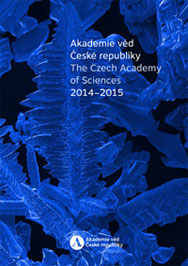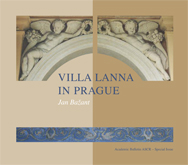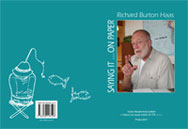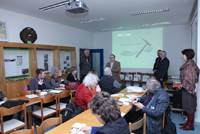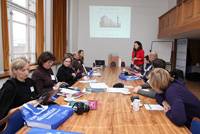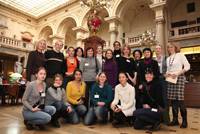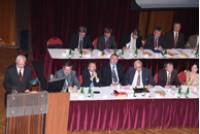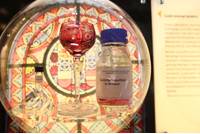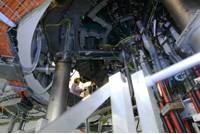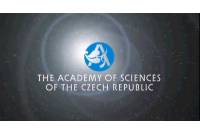The European Research Council (ERC) has selected 312 top scientists in its first Consolidator Grant competition. These mid-career scientists are awarded a total of nearly €575 million. Grants are worth up to €2.75 million each, with an average of €1.84 million per grant. This new funding will enable already independent excellent researchers to consolidate their own research teams and to develop their most innovative ideas across the European Research Area.
The projects selected in this call cover a wide range of topics: using a geochemical clock to
predict volcanic eruptions; exploring the effects of Dark Matter and Dark Energy on gravitational
theory; checking responsibility, liability and risk in situations where tasks are delegated to
intelligent systems; and investigating the role of genetic and environmental factors in embryo
brain wiring. (See more attached)
On this occasion, European Commissioner for Research, Innovation and Science Máire
Geoghegan-Quinn said: "These researchers are doing ground-breaking work that will advance our
knowledge and make a difference to society. The ERC is supporting them at a key moment where
funding is often hard to come by: when they need to move forward in their career and develop their
own research and teams."
The newly appointed President of the ERC, Professor Jean-Pierre Bourguignon commented: “The
new year starts with the conclusion of the first competition for Consolidator Grants and I am very
impressed by the quality of the selected projects. Judging by the ever increasing demand for ERC
grants, especially from early- and mid-career researchers, it is clear that funding of this kind is
much needed. Taking a broader view, I am pleased to have embarked on a new challenge as head of
this organisation, which has achieved world-class status in a very short time. It’s pivotal for
Europe to create conditions for its new generation of researchers to thrive while following their
scientific curiosity.”
With over 3600 proposals submitted, the demand for these grants rose by 46% this year,
compared to the corresponding group of applicants in 2012. The ERC Consolidator Grant scheme
targets researchers with seven to twelve years’ experience after their PhD, a period of the
scientific career covered until 2012 under the Starting Grant scheme. The share of women amongst
the successful candidates in this call (24%) increased in comparison with the equivalent group of
mid-career researchers in 2012 (22.5%). The average age of the selected researchers is 39. The
overall success rate is 8.5%.
The ERC calls target top researchers of any nationality based in, or willing to move to,
Europe. In this call, grants are awarded to researchers of 33 different nationalities, hosted in
institutions located in 21 different countries throughout Europe, with nine of them hosting five
grantees or more. In terms of host institutions, the UK (62 grants), Germany (43) and France (42)
are in the lead. Researchers are also hosted in the Netherlands, Switzerland, Spain, Italy, Israel,
Belgium, Sweden, Austria, Denmark, Finland, Portugal, Greece, Hungary, Ireland, Turkey, Cyprus, the
Czech Republic and Norway. In terms of researchers' nationality, Germans (48 grants) and Italians
(46) are at the top, followed by French (33), British (31) and Dutch (27) researchers. (See
statistics attached).
ERC website
14 Jan 2014




